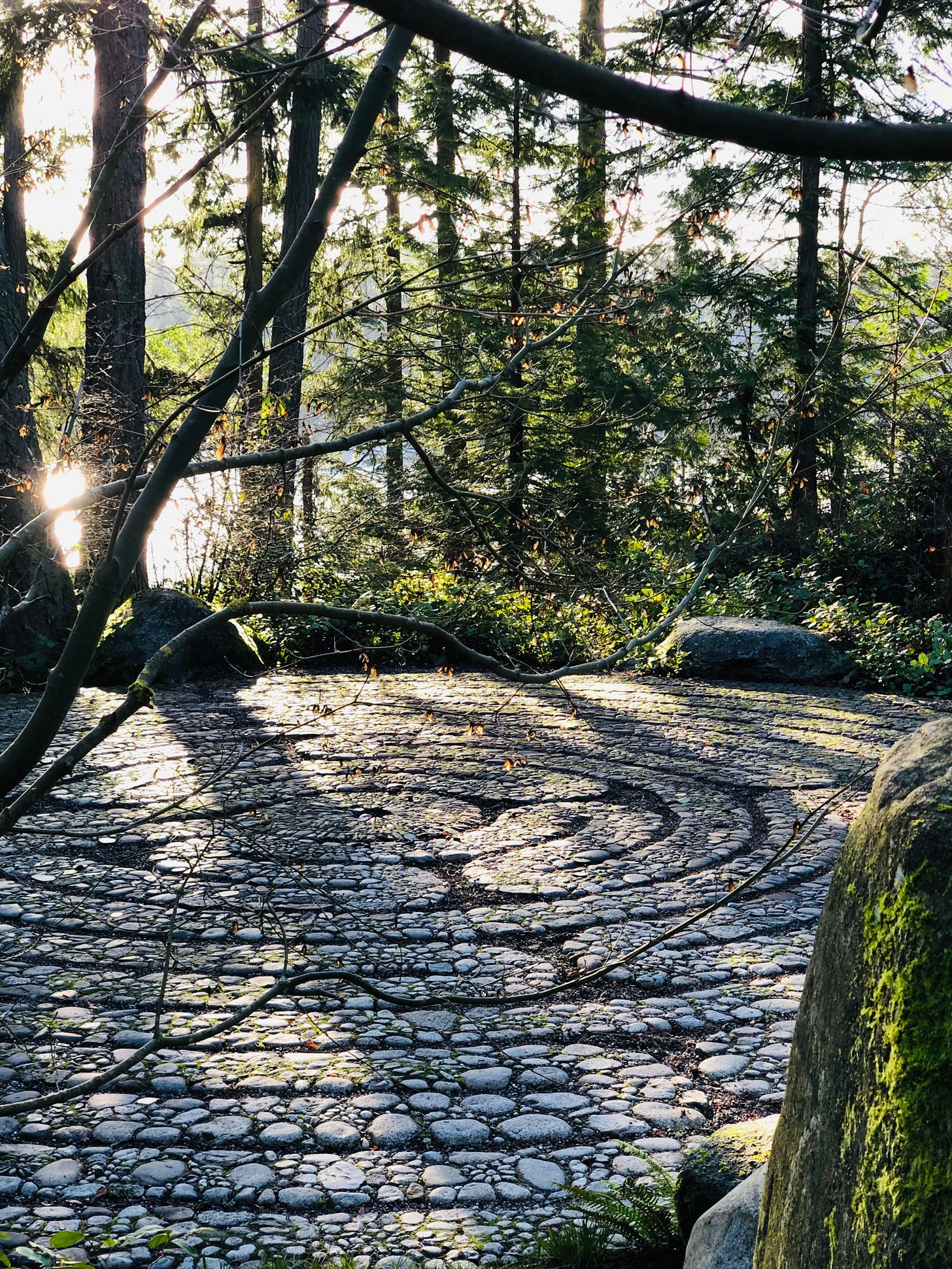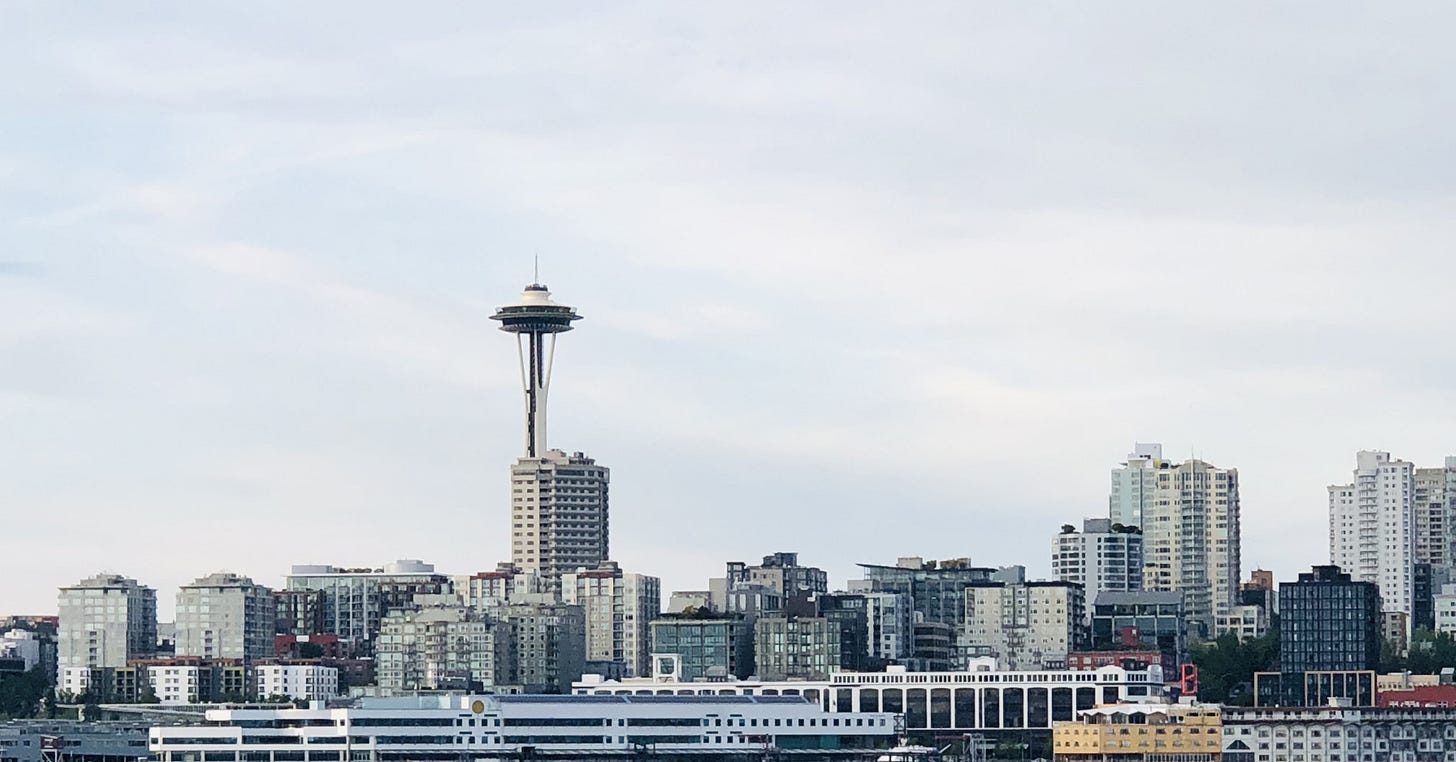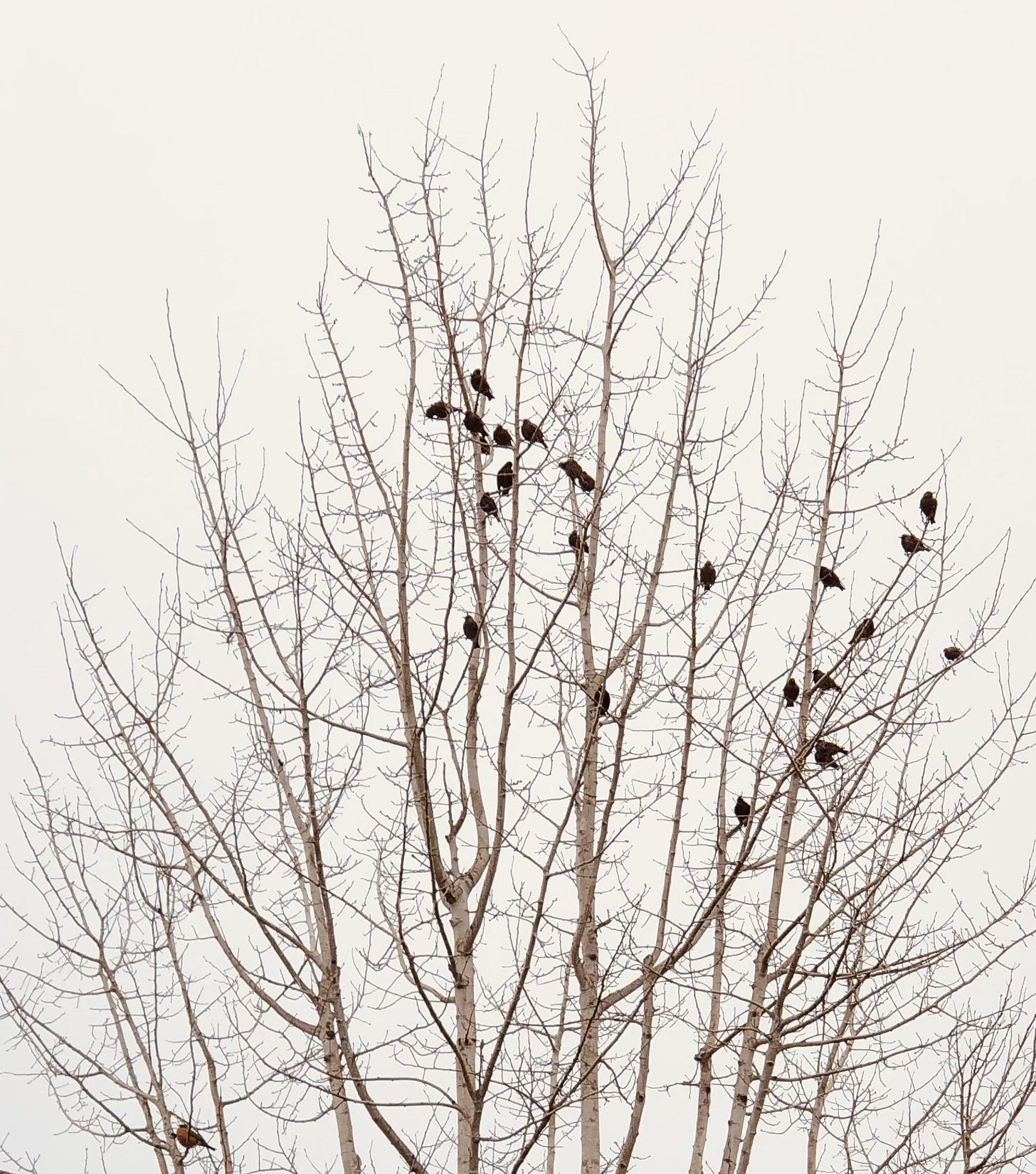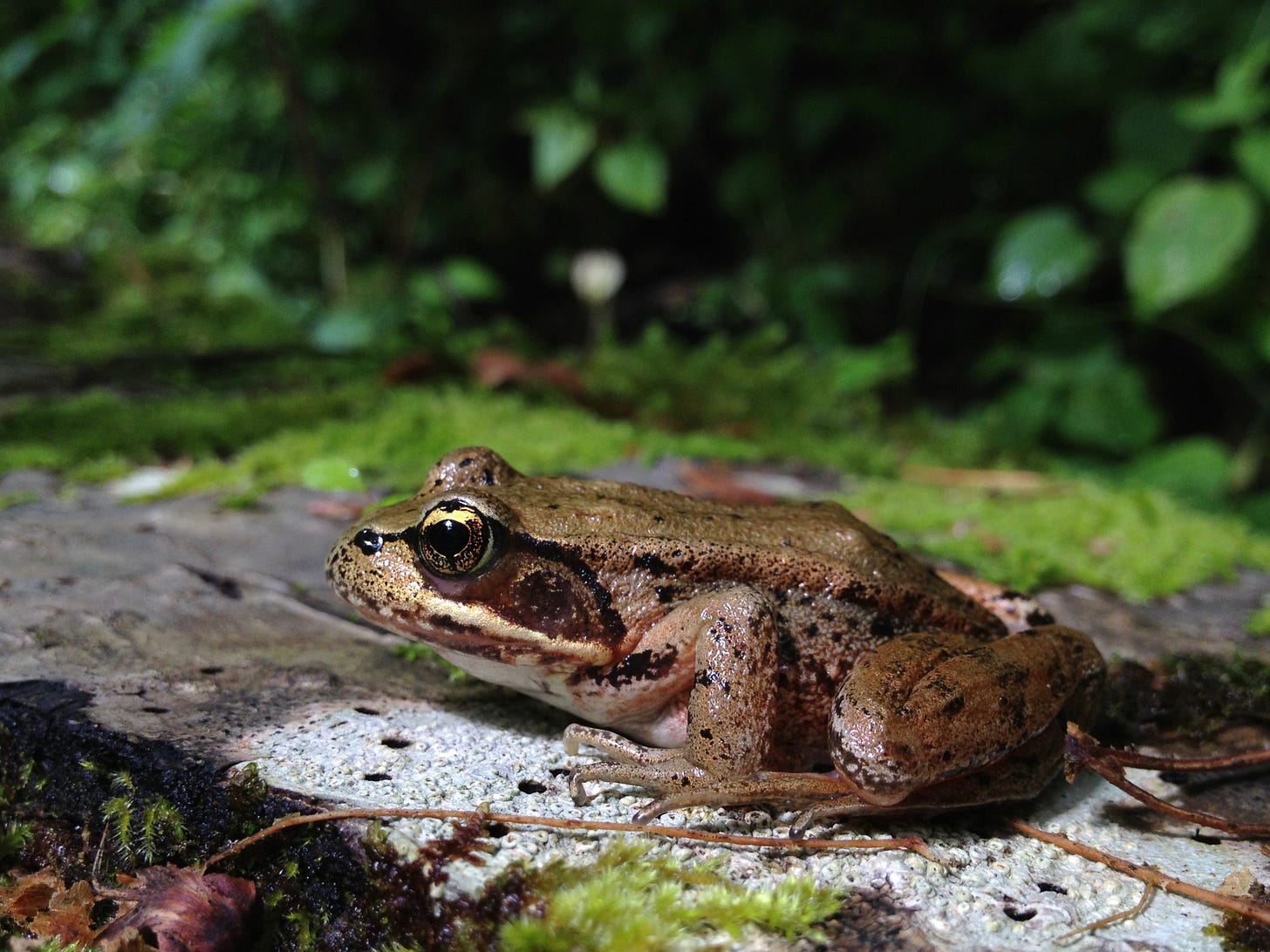There is a very important distinction to be made between listening and hearing. Sometimes we listen to things, but we never hear them. True listening brings us in touch even with that which is unsaid and unsayable. Sometimes the most important thresholds of mystery are places of silence. ~John O’Donohue, Anam Cara

I’ve never been partial to the notion that “everything happens for a reason.” I find it to be a limited and philosophically frustrating framework that begets too many important questions lacking satisfactory answers. Still, the practicing Stoic in me will sometimes welcome the invitation to seek beneath the surface of a minor mishap or waylaid plans. At the very least it’s good equanimity practice and—given the state of the world—practice is certainly in order.
Intriguingly, when I am able to lean into a small setback or unexpected twist, there is frequently something to glean from it if I have the eyes to see.
Just the juncture at which I found myself last week due to a last minute scheduling snafu. I stood hovering outside the door of a favorite vegetarian café without an expected lunch companion and was summoned inside anyway by the enticing aromas of freshly-baked blueberry muffins. As I tucked myself solo at a window-side table for two, a critical conversation began to drift across the small room.
A pair of women were seated at the only other occupied table and one of them was speaking intensely to the other—a friend or daughter, maybe even therapist—who in turn sat gazing in rapt attention, chin propped steadily in hands. I won’t relay the conversation verbatim out of respect for their privacy, but suffice it to say that the woman talking revealed herself to be in a state of deep distress. Her voice carried, as did the depths of despair woven in her words.
Two things impressed upon me as I sat waiting for my food, staring out the window into the bare black branches of the lovely winter trees, inadvertently attending to a stranger’s suffering. First, that she did not appear to be somebody in anguish. She sat calmly without tears, burrowed inside a cheerful sweater that looked hand-knit, in possession of a stylish haircut and steaming cup of coffee. A vital reminder that looks can belie. An incongruity that conjures up the saying often attributed to Plato: “Be kind, for everyone you meet is fighting a hard battle." Amen, and too often unseen.
Equally striking was the compassionate concentration on display in the woman’s attentive confidant who didn’t assert her own observations, objections, or personal narrative. Nor did she attempt paltry platitudes along the lines of, “Oh surely you don’t mean that, things will get better!” or “Think positive, maybe you’ll see it differently tomorrow.” Statements I may have been tempted to offer up to ease a fellow traveler’s pain. On the contrary, her companion didn’t impart advice or intervention of any kind. She simply sat in silence, empathetic with her entirety.
To employ John O’Donohue’s insightful framework, this adept listener seemed to recognize she was in the powerful presence of the “unsaid and unsayable.” Centerpieces of existence too often concealed (and congealed) beneath the surfaces of skin and soul, waiting to be drawn out.
Hearing heals.
An inspiring iteration of an ecological theme I find myself repeatedly returning to, and that brings me to the page today. Which is what gets lost when we stop listening. And all there is to be gained when we restore our ability to perceive with our senses again. A living breathing speaking and sentient world awaits us: human and heron, meadow and mesa, forest and field.
Yet our industrial-oriented lives are not only raucously loud, they are also ravenous—and therefore growing louder. So much so that on most days it’s hard enough to identify our own voices clearly in the consuming cacophony, much less ascertain or tune into those attempting to converse in our midst. No wonder loneliness is at epidemic levels across the globe. The ceaseless roar and rumble of urban decibels increasingly disconnects us from other living beings, or any true sense of place in the cosmos.
My first tangible encounter with this modern-day enigma occurred in 1990 when I was traveling as a very young woman across Europe. Despite trusty guidebooks regaling me with visions of famous storybook landmarks, each city I entered began to look and feel oppressively indistinguishable from the next. Every metropolitan train station presented safety concerns after dark and I quickly took to not speaking aloud in order to veil my vulnerability as an American tourist lacking local fluency in all regards.
So many of my memories of Madrid and Florence, London and Dublin, and even oft-romanticized Paris are midnight train depots echoing with long shadows, humming highways and headlights, the noxious fug of overcrowded restaurants, and grinding gears of garbage trucks outside the paper-thin walls of my cheap overnight hostels.
Which is not to say that the treasure-laden cities flung far and wide across our planet don’t each possess unique histories or intimate beauties to celebrate. Every place does. But it’s telling that one of my most cherished mornings in all the months I spent in Europe that formative year is lying awake at early dawn inside the modest urban apartment of a remote acquaintance who happened to live within walking distance of Rome’s historic Colosseum.
As the light began to color in the morning sky, so did a thunderous hymn of songbirds who were perched somewhere nearby. They sang their hearts out for nearly an hour and perhaps because I was so city-weary, I felt that never in my life had I heard anything quite so soul-quenching.
Looking back on that particular weekend, I don’t recall the Colosseum or the architectural details of other historic sites I may have sought out and photographed. Yet those sweetly-singing birds are emblazoned in my memory. When I think of Rome, I think of them. They rooted me to place via the first and oldest language that binds us all in commonality: the call and response comprising our planet entire.
The chorus of creation we are meant to hear and harmonize with.
With that refrain in mind, one of the disorienting dichotomies embedded in my yearning to write is that it flows directly from an increasing desire to listen, not speak. A kind of koan that can get me spinning, as well as stuck. Praised poet, activist, and essayist Nikki Giovanni addressed this conundrum resonantly by stating, “I’m glad I understand that while language is a gift, listening is a responsibility.” It is indeed, but it’s too easy to forget. I’ve come to see through her eyes that the two actually live inside each other, inseparable and intertwined. As all things are.
Language begets listening. Listening begets language—and so much else too.
It’s why I commend how bold O’Donohue is when he cautions us that even when we think we are listening, we are “never hearing.” A strong and defiant admonition, and it comes as a surprise tucked inside his gentle prose. He doesn’t even give us wiggle-room by saying rarely; instead, he uses never. No doubt he’s harnessing its certainty intentionally, perhaps in the hopes that we’ll inch a little closer to the thoughtful “thresholds” that exist beyond the words we wear and wield, even war with.
But what are these perceptive places he wants us to find? And where in this worried world are they hiding?
I start my search, as is my habit, with a dictionary and thesaurus. Threshold is defined rather poetically as “an entrance” or “a doorway”; also “the point of beginning” or “the point of departure”—which, yes, are often one and the same. Just as instructive for our purposes: “An amount at which something comes into effect.” I might love this descriptive most. How dusk to dawn, and day to dusk, are set into motion by the sun’s proximity. In other words, the precipice reached where the preponderance of one thing yields to another. It not only exquisitely encapsulates the origins of so many of our existential crises, but offers the hope of renewal in the very same breath.
The sum of our severance or the measure of our mercy. We’re at the threshold and the choice is ours.
Every spring in Bath, England the thoroughfare of Charlcombe Lane is shut down to traffic for six weeks in order to protect thousands of newts, toads, and frogs who follow the ancient siren’s call to migrate (riskily) across its half-mile pavement expanse to a breeding lake. Before the street closure was instituted, more than sixty percent of this amphibian community was killed by cars. Somebody finally took notice and acted to alter their doomed fate. Last year more than 600 volunteer hours were devoted to assisting as many as 3,200 of these small souls traverse this treacherous stretch of road to reach their watery birthing grounds. As a result, their mortality rate has plummeted to a mere 6 percent.
I like to think of the frog-song this lake now exhales every evening as the sun gives way to moon. Where language becomes listening and silence meets mystery, the unsaid and unsayable get their long-awaited place at the table.
We need them as much as they need us.




"Hearing heals." It sure does. Yet so few people truly and deeply listen, myself included. Thank you for this beautiful and gentle reminder to slow down and tune in. Hearing is not only healing to those that are heard, but it is also healing to those of us doing the listening. Also love the story about traffic shutting down for the annual crossing of the newts, toads, and frogs in Bath. It took somebody to notice and take action to alter their fate. Inspiring.
"Our industrial-oriented lives are not only raucously loud, they are also ravenous—and therefore growing louder." This is the primary reason I left the city. I left for spiritual reasons. I needed to be in quiet place that gets all the way dark at night. I was beginning to feel like city life was separating me from the Creator.